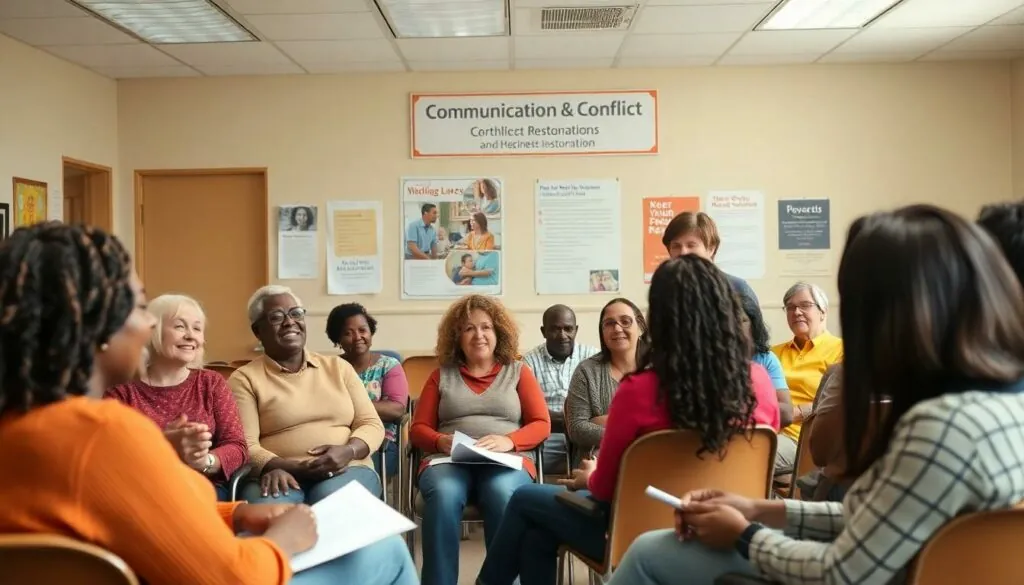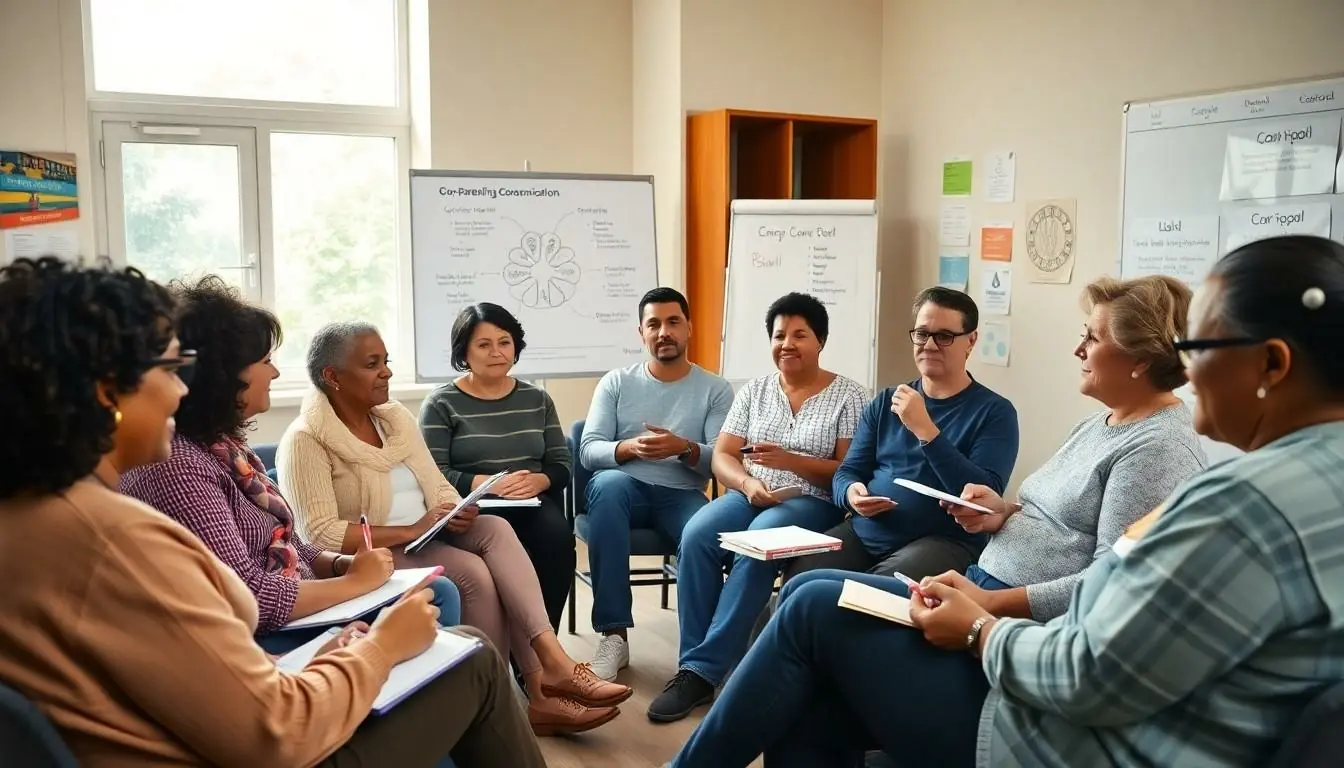Navigating the choppy waters of co-parenting after separation or divorce can feel like trying to pilot a ship through a storm. But there’s good news – co-parenting classes serve as a reliable compass to help parents chart a smoother course for their children’s future.
These transformative programs equip parents with essential tools and strategies to communicate effectively maintain healthy boundaries and create a stable environment for their kids. Whether court-mandated or voluntary co-parenting classes offer a structured approach to managing the unique challenges that arise when raising children across two households. From learning conflict resolution techniques to understanding children’s emotional needs during transitions these classes have become a game-changer for countless families.
Table of Contents
ToggleWhat Are Co-Parenting Classes and Their Purpose
Co-parenting classes provide structured education for separated or divorced parents to manage shared parenting responsibilities. These educational programs equip parents with practical tools for maintaining healthy communication patterns focused on their children’s well-being.
Core Principles of Co-Parenting Education
Co-parenting education centers on five foundational principles:
- Creating consistent routines across both households through shared calendars scheduling methods
- Establishing clear boundaries for parent-to-parent communication via designated channels
- Developing conflict resolution strategies using “I” statements rather than accusations
- Learning child-centered decision making by prioritizing kids’ needs over personal differences
- Building parallel parenting techniques that minimize direct contact while maximizing child support
Parents learn specific communication protocols including:
- Business-like tone in all interactions
- Documentation of agreements using parenting apps
- Neutral language when discussing the other parent
- Direct problem-solving approaches without emotional escalation
Benefits for Children of Divorced Parents
Research demonstrates measurable advantages for children whose parents complete co-parenting education:
- Enhanced emotional security through reduced exposure to parental conflict
- Improved academic performance from consistent homework expectations
- Stronger mental health outcomes with 60% lower anxiety rates
- Better social relationships due to modeling of respectful communication
- Maintained meaningful connections with both parents
- Stable daily routines between households
- Clear understanding of schedules transitions
- Reduced stress during custody exchanges
- Increased comfort expressing feelings about family changes
- Greater sense of stability during adjustment periods
Types of Co-Parenting Classes Available
Co-parenting classes come in multiple formats to accommodate different schedules, learning styles and geographic locations. Each format offers specialized instruction tailored to parents navigating shared custody arrangements.
Online Co-Parenting Programs
Online co-parenting programs provide flexible access to course materials through digital platforms. Parents complete interactive modules at their own pace using computers, tablets or smartphones. These programs include video lessons, downloadable worksheets, discussion forums and progress tracking tools. Course content covers topics like communication strategies, conflict management and creating consistent routines across households. Many online programs offer certification upon completion that meets court requirements. Leading platforms integrate scheduling tools, shared calendars and document storage to streamline co-parenting logistics.
In-Person Group Sessions
In-person co-parenting classes take place in community centers, counseling offices or courthouse facilities with certified instructors. Groups typically meet weekly for 6-8 sessions lasting 2-3 hours each. Participants engage in role-playing exercises, group discussions and hands-on conflict resolution practice. Licensed facilitators provide personalized feedback and moderate productive dialogue between co-parents. Sessions often include workbooks, communication templates and resource referrals for ongoing support. The group format allows parents to learn from others facing similar challenges while building their co-parenting toolkits.
Essential Topics Covered in Co-Parenting Classes
Co-parenting classes address crucial areas that help separated parents maintain healthy relationships centered on their children’s wellbeing. The curriculum focuses on three fundamental aspects: communication skills building conflict management methods creating structured parenting agreements.
Communication Strategies
Co-parenting classes teach specific techniques for maintaining clear respectful exchanges between parents. Parents learn to use neutral language focused solely on child-related matters tracking communications through approved channels like specialized apps or email. The curriculum covers active listening skills establishing regular check-ins setting boundaries for discussions implementing business-like communication protocols. Practical exercises demonstrate proper documentation methods organizing important information sharing systems scheduling routines across households.
Conflict Resolution Skills
Parents develop strategies to manage disagreements constructively without involving children in adult disputes. The training emphasizes recognizing trigger points using “I” statements instead of accusations responding rather than reacting to challenging situations. Classes incorporate role-playing scenarios teaching parents to navigate common co-parenting conflicts such as schedule changes holiday arrangements educational decisions. Participants learn mediation techniques identifying compromise opportunities establishing clear problem-solving protocols.
Creating Effective Parenting Plans
Co-parenting classes guide parents through developing comprehensive parenting plans that address daily routines special occasions responsibilities. Parents learn to create detailed schedules covering school activities medical appointments extracurricular commitments holiday arrangements. The curriculum includes templates for documenting agreements decision-making protocols expense sharing arrangements communication guidelines. Participants explore methods for adapting plans as children age maintaining flexibility while ensuring stability consistency between households.
When to Take Co-Parenting Classes
Co-parenting classes offer optimal benefits during specific stages of separation, divorce or family transition periods. Timing plays a crucial role in maximizing the educational impact of these programs.
Court-Mandated Requirements
Courts mandate co-parenting classes in 27 U.S. states during divorce proceedings involving minor children. Parents receive specific deadlines to complete these courses based on their jurisdiction’s requirements:
- 30-90 days after filing divorce papers in most counties
- Before the first custody hearing in states like Florida, Utah, Oklahoma
- Prior to finalizing divorce agreements in California, Texas, New York
- Within 60 days of temporary custody arrangements in high-conflict cases
Completion certificates must be submitted to the court before proceeding with custody arrangements or divorce finalization. The required course length ranges from 4-12 hours depending on state regulations.
Voluntary Enrollment Options
Parents choose voluntary co-parenting classes at several key transition points:
- Before filing for divorce to prepare for custody discussions
- During mediation processes to improve communication skills
- After relocation of one parent to establish new routines
- When introducing new partners into children’s lives
- During significant child development stages like starting school
- Following recurring co-parenting conflicts
Early enrollment in voluntary programs correlates with reduced conflict rates during custody negotiations. Online courses provide immediate access while in-person classes typically start monthly at community centers, counseling offices or family resource centers.
Choosing the Right Co-Parenting Program
Selecting an appropriate co-parenting program involves evaluating multiple factors to ensure the best fit for individual circumstances. Parent education programs vary in format, duration, cost structure and teaching methodology.
Cost and Time Commitment
Co-parenting classes range from $30 to $200 based on program length and delivery method. Online courses typically cost less than in-person sessions, with basic 4-hour programs starting at $35. Premium packages offering 12+ hours of instruction, downloadable resources and ongoing support range from $150-$200. Most court-approved programs require 4-8 hours of instruction spread across multiple sessions. Online programs allow participants to complete modules at their own pace within 30-180 days. In-person classes follow fixed schedules with weekly 2-hour sessions spanning 4-6 weeks.
Program Credibility and Reviews
Accredited co-parenting programs display certification from recognized organizations like the Association of Family and Conciliation Courts. Licensed mental health professionals, certified mediators or family law specialists lead these programs. Parent reviews on independent platforms provide insights into program effectiveness, with ratings focusing on instructor expertise, content relevance and practical application. Programs with 4+ star ratings across 500+ reviews demonstrate consistent quality. Verification badges from state courts confirm program compliance with local requirements. Course completion certificates include unique identifiers for court validation.
Conclusion
Co-parenting classes stand as a vital resource for parents navigating the complexities of raising children across two households. Whether taken voluntarily or mandated by courts these educational programs equip parents with essential tools for effective communication conflict resolution and child-centered decision-making.
The proven benefits for children including enhanced emotional security and improved academic performance make these classes a worthwhile investment. With flexible options available both online and in-person parents can choose a program that fits their schedule budget and learning style while ensuring they meet any court requirements.
By focusing on practical strategies and evidence-based techniques co-parenting classes help create a foundation for successful shared parenting that prioritizes children’s well-being during family transitions.






